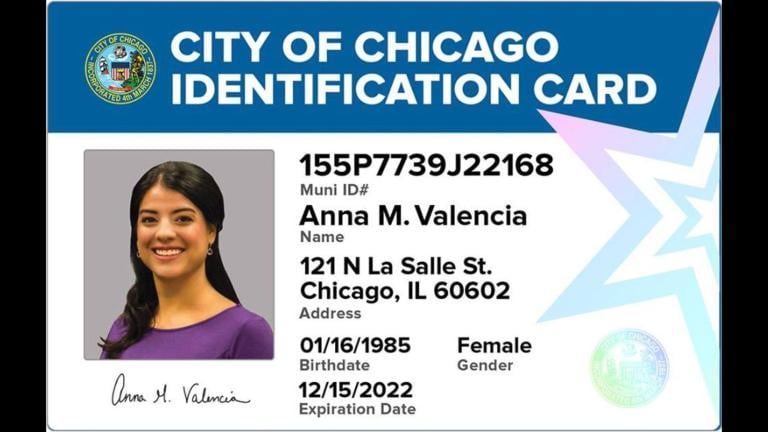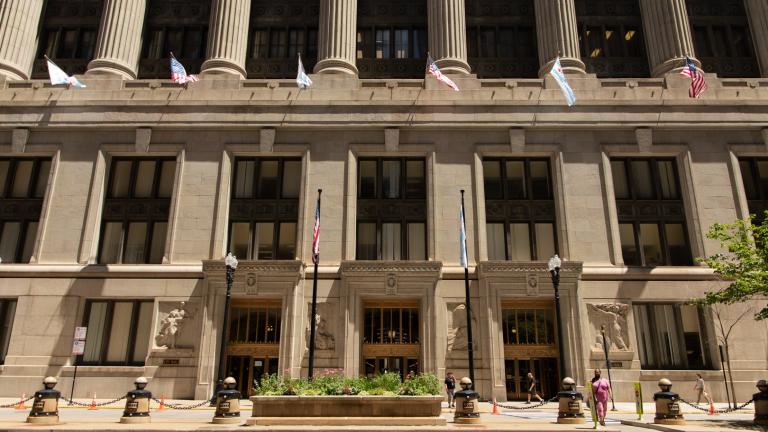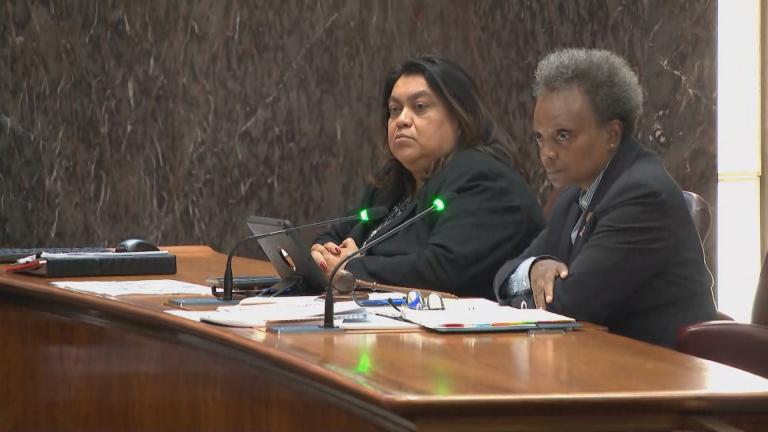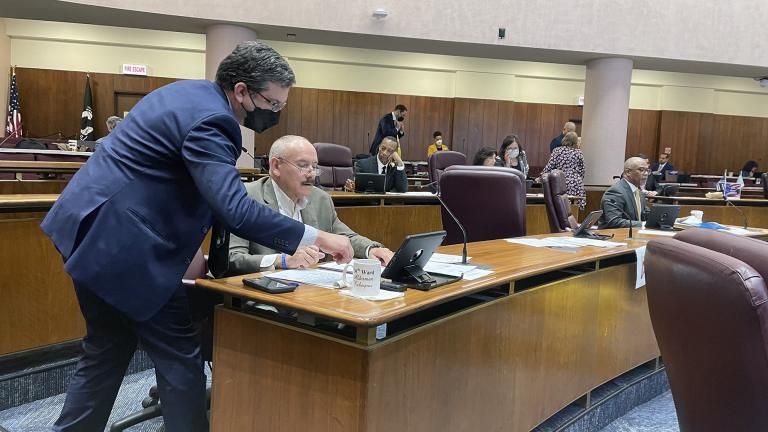During her campaign for mayor, Lori Lightfoot promised to fast-track vehicle ticket collection reform.
For some residents, parking tickets and city sticker late fees are an annoying aggravation, but they can drive others to despair. Economic data shows that more than half of American households have less than $500 in savings. That means a few minor parking tickets can become a major catastrophe.
At a press conference last week outlining proposed reforms to ticket collection, Lightfoot reflected on her own family’s financial struggles. “I know what it’s like to grow up in financially challenged circumstances and to be one bill or one mistake away from crushing debt,” she said.
Vehicle fines bring in more than $260 million each year to help the city’s cash-strapped budget, but they create a mess for many Chicagoans, mostly in minority communities, leading to suspended licenses and even bankruptcy. A report by Chicago’s Woodstock Institute outlines how low-income and minority communities are disproportionately impacted by ticketing. It’s estimated some 70,000 Chicagoans have suspended licenses because they didn’t pay their tickets.
The office of City Clerk Anna Valencia oversees the enforcement and collection of vehicle city stickers, which brings in $135 million a year in revenue. Valencia headed up the Fines, Fees and Access Collaborative, a task force that gave Lightfoot recommendations for how Chicago could ease the burden of ticket debt collection.
“Our goal was to remove barriers and create pathways to compliance,” Valencia said. “This legislation is a huge win.”
Proposed ticket debt relief reforms include:
• Ending driving’s license suspension for non-moving violations
• Lowering the thresholds for payment plans to as little as $35
• Reducing city sticker fines
Although the legislation didn’t include all the recommendations in the task force’s “Advancing Equity” report, Valencia still sees this as a big first step.
“I would never have recommended all 14 of the recommendations in one piece of legislation,” she said. “That wouldn’t be good government.”
Additional recommendations from the report include removing the boot for non-moving violations, removing the employment barrier that prevents parking scofflaws from getting city government jobs, and allowing ticket scofflaws to do community service to pay off debt.
The ticket reform legislation is expected to go to the Chicago City Council for a vote in September.
Contact Andrea Guthmann: @AndreaGuthmann
Related stories:
Chicago Mayor, Clerk Move to Lighten ‘Crushing’ Vehicle Fines
City Can’t Keep Impounded Cars After Drivers File for Bankruptcy: Court
Electric Scooters in Chicago: Are They Here to Stay?







